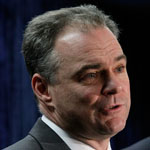
The financial crisis was caused by a massive intellectual failure which ran through governments, regulators, banks and the wider financial system, the Treasury will today admit as it presents its definitive account of the past 18 months' chaos. The efficient markets theory which dominated the way economists viewed the world and financiers conducted business over recent decades was simply wrong and played a major part in the crisis, the Treasury is likely to conclude in its White Paper, to be presented to Parliament today. It will claim that the intellectual foundations for the way banks' boards ran their companies, and the Bank of England and Financial Services Authority managed them, were misguided. The conclusions will form a key part of the White Paper, which will also contain detailed plans one of the biggest overhauls of UK financial regulation in decades. – Telegraph
Dominant Social Theme: Sometimes the establishment gets it wrong.
Free-Market Analysis: In our humble opinion, the British Treasury's definitive account of what went wrong with the economy in Britain (and the West) is not persuasive, at least not from a free-market point of view. From the point of view of free market thinkers, the financial crisis has to do with a financial system that guarantees these sorts of problems to a greater or lesser degree every decade or so.
The Treasury explanation comes on the back of one from the London School of Economics, addressed to the Queen of England, that explained the problems had to do with an excess of imagination and hubris. But it is hard to believe that the West's financial systems toppled over because of a misguided belief in free markets or because of too much imagination or hubris.
Along with our many free-market betters, we think that the system itself is somehow flawed, not the beliefs that surround it. In fact, we have regularly placed the blame on central banking itself. We know in doing so, we return some of the same topics, but we think our modest voice should be a bit repetitious considering the vast mainstream din of other explanations.
Our explanation is very simple. Central banks print too much money causing first a boom and then, eventually a bust. The busts tend to happen quickly and are first seen in stock markets. But from our point of view this is an example of the efficient market at work. The market tends to respond to failure in a logical way and booms tend to wax and wane in an orderly fashion. When it suddenly became clear that the assets propping up the tech boom would not provide further profits, markets sold off and sold off hard. When the mortgage bubble was punctured more recently, markets sold off hard again, revealing the larger ongoing distortions in markets worldwide.
None of this is inefficient. The volatility is caused by central bank overprinting of money. And markets are doing what they are supposed to do in responding to these monetary policies. Markets respond to all available information. How could it be otherwise? It only seems as if markets are irrational because those in charge of the monetary systems decline to explain the role that central banking plays in market volatility. Faced with this lack of information, people grow puzzled and confused. Of course, if you are reading this, the chances are that you are not confused or on your way to not being confused. The chances are you do not believe that market crashes are caused by hubris or massive intellectual failure. These explanations are really beyond the pale.
Don't take our word for it. We have provided our readers here with a simple "Austrian" free-market approach, one that can be found in numerous places on the ‘Net. But it is not especially helpful to the cause of the monetary elite to explain what is going on in these terms. Those in positions of economic leadership are far more apt to want to propose a marketplace that is irrational and prone to the madness of crowds. Once the markets have been presented as irrational, solutions can be provided that feature further regulation and more control. This puts the regulatory bureaucracy in charge, and today markets are being set up for further regulation based on the theory that they are irrational.
If the powers-that-be truly wanted to present a workable solution, they would return to some sort of precious metals standard. The gold standard worked fairly well for nearly two centuries, though of course a market-based gold and silver standard would work even better, history shows us. We are on record as stating that the central banking system of the 20th century has imploded in the 21st.

We think there will be a return, willy nilly, to some sort of metals standard over time. It may take a good deal of time, but it will take place in our opinion. The problem with Western markets has nothing to do with hubris, intellectual failure, over-active imaginations, etc. It has everything to do with the 20th century system of monetary price-fixing by a worldwide cartel of central banks. And over time, mostly because of the information available on the Internet, the system will have to change.
